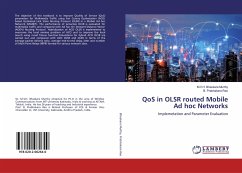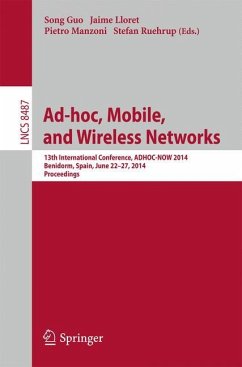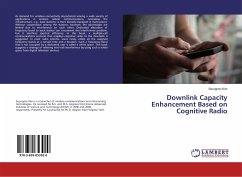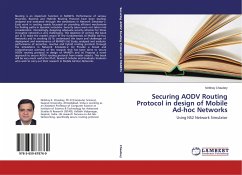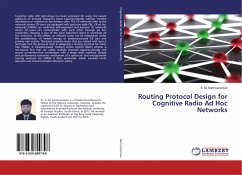
Routing Protocol Design for Cognitive Radio Ad Hoc Networks
Versandkostenfrei!
Versandfertig in 6-10 Tagen
41,99 €
inkl. MwSt.

PAYBACK Punkte
21 °P sammeln!
Cognitive radio (CR) technology has been proposed for using the vacant spectrum of licensed frequency band opportunistically without harmful interference or collisions to the primary users. The CR networks refer to the networks where CR users are equipped with spectrum agile CRs. CR ad hoc networks (CRANs) are multi-hop self-organized and dynamic CR networks where CR users can communicate with each other through ad hoc connection. Routing is one of the most important issues in multi-hop ad hoc networks. In the CRANs, an efficient route can be established under the consideration of limited ener...
Cognitive radio (CR) technology has been proposed for using the vacant spectrum of licensed frequency band opportunistically without harmful interference or collisions to the primary users. The CR networks refer to the networks where CR users are equipped with spectrum agile CRs. CR ad hoc networks (CRANs) are multi-hop self-organized and dynamic CR networks where CR users can communicate with each other through ad hoc connection. Routing is one of the most important issues in multi-hop ad hoc networks. In the CRANs, an efficient route can be established under the consideration of limited energy of battery-powered CR user and primary user activity. This book presents issues that are related with layer-2 and layer-3 of the protocol stack in designing a routing protocol for multi-hop CRANs. A schedule-based medium access control (MAC) scheme is introduced first that can utilize multiple channels opportunistically and ensure contention-free transmission with a single radio interface. Design and performance evaluation mechanism of a spectrum- and energy-aware routing protocol for CRANs is then presented, which involved route selection and channel-timeslot allocation jointly.







